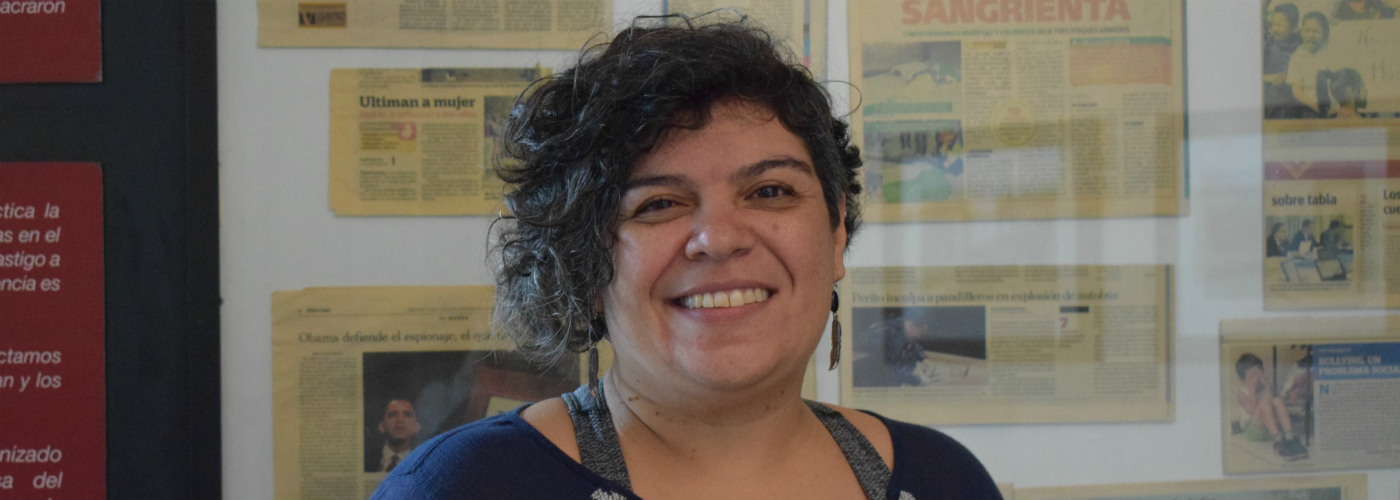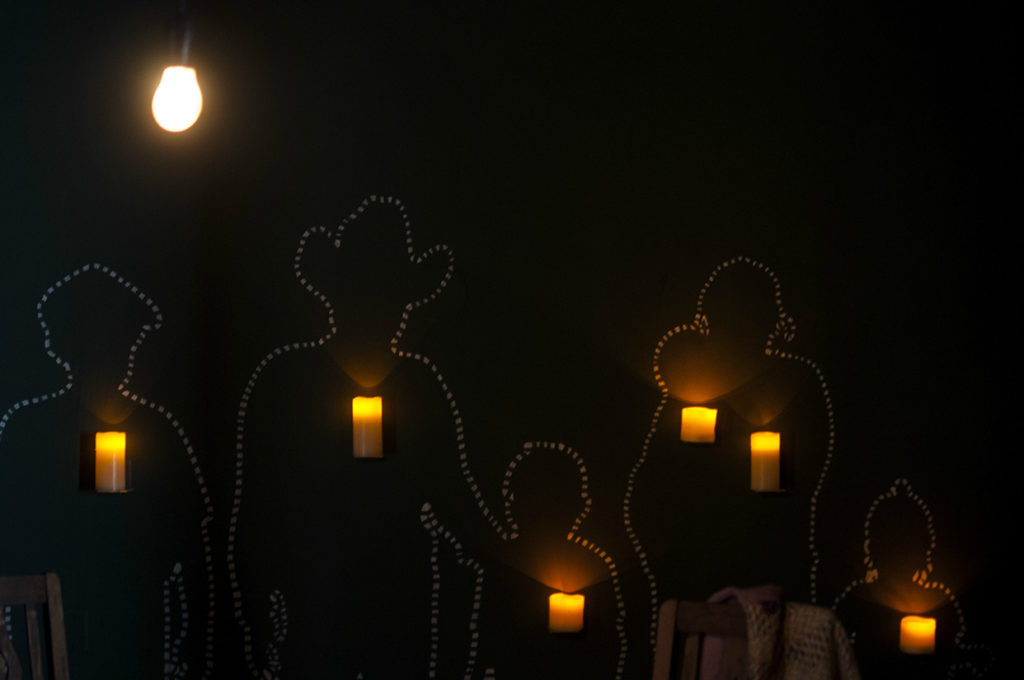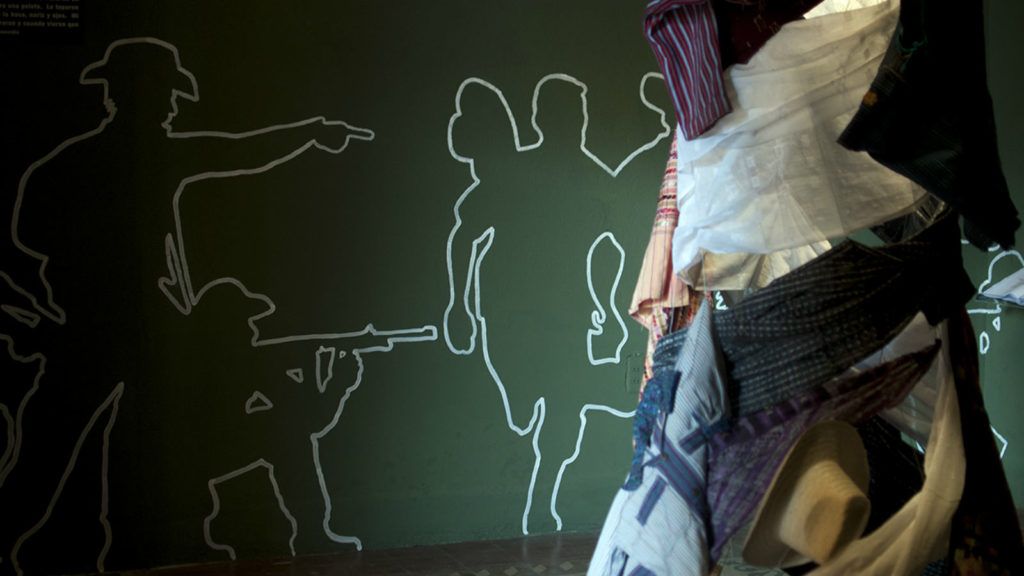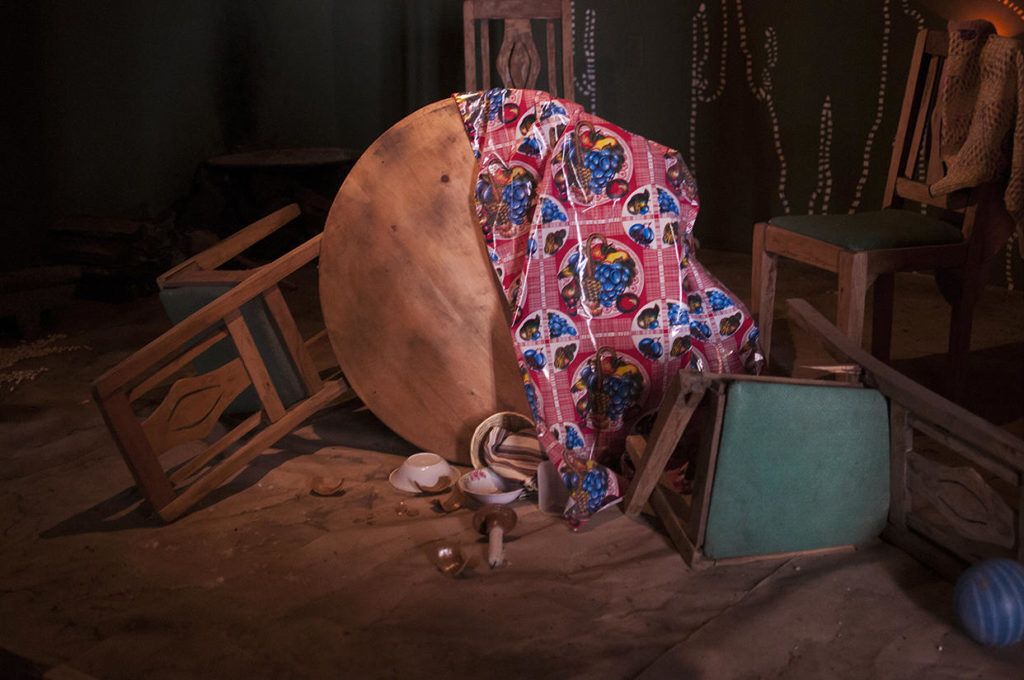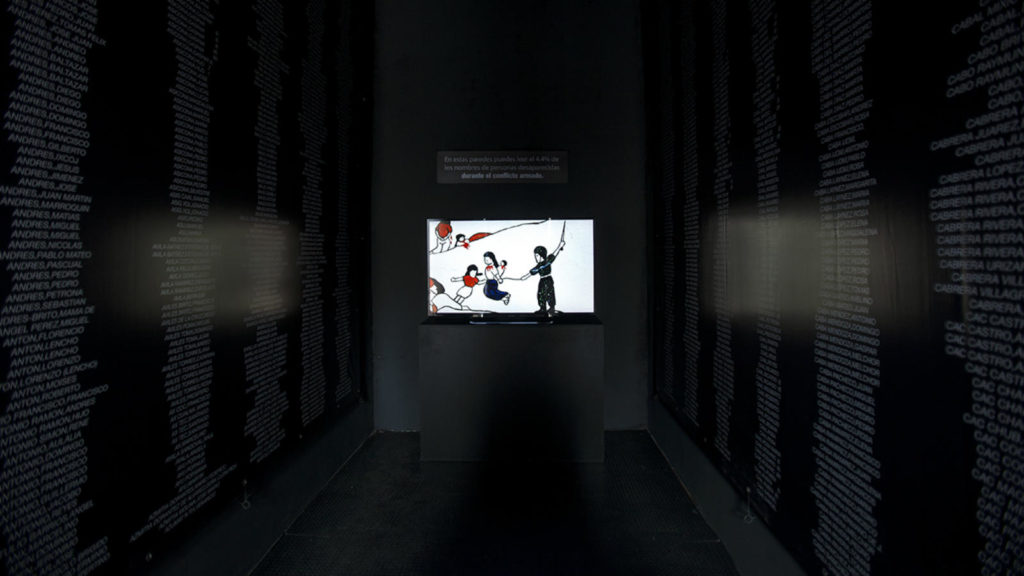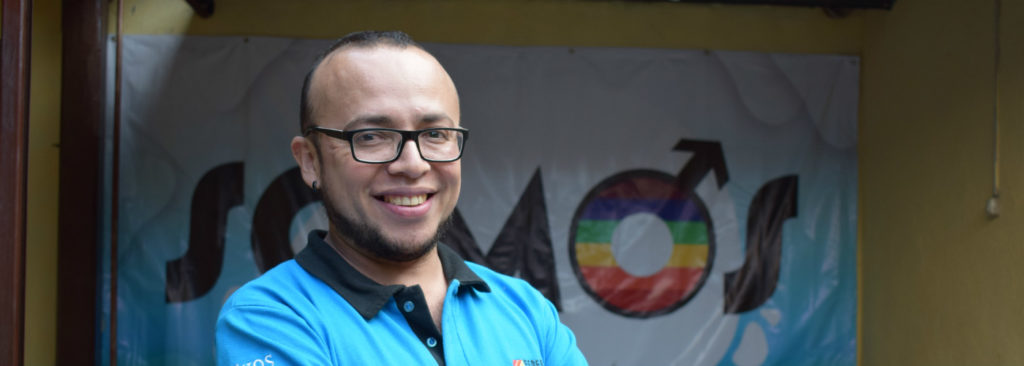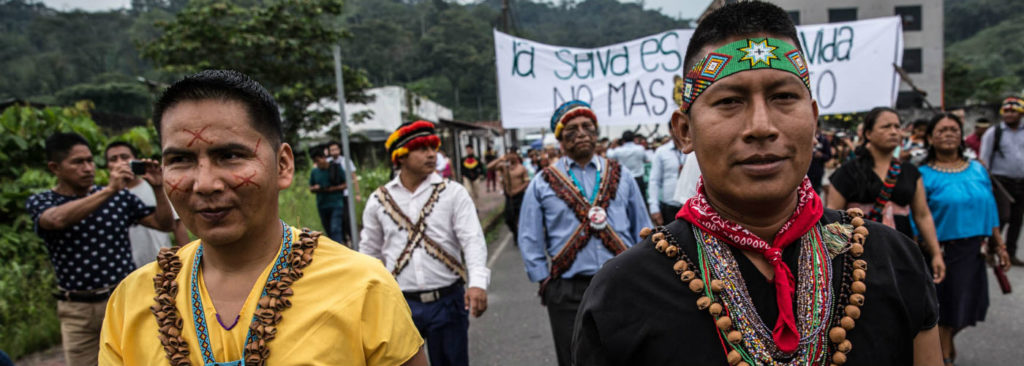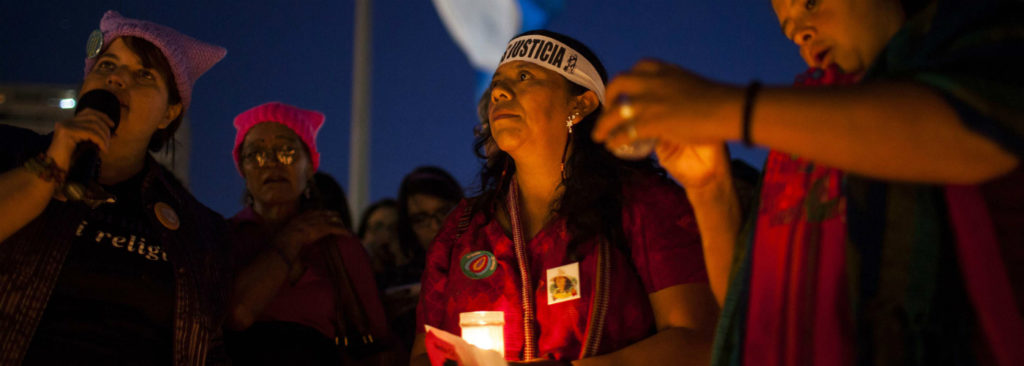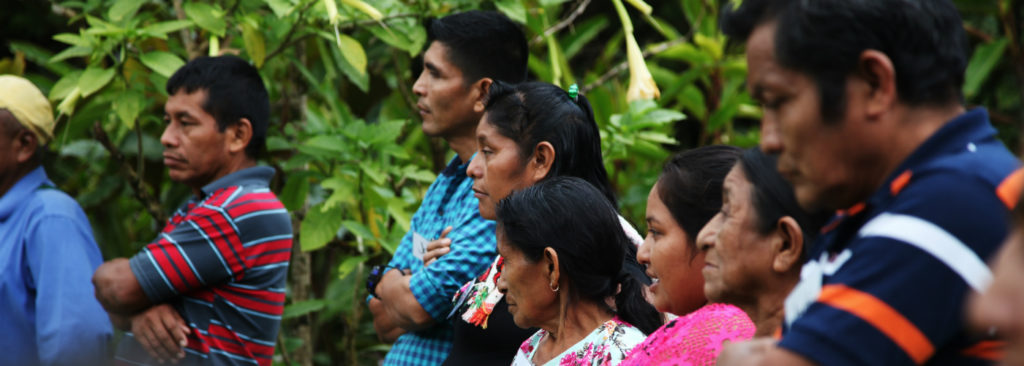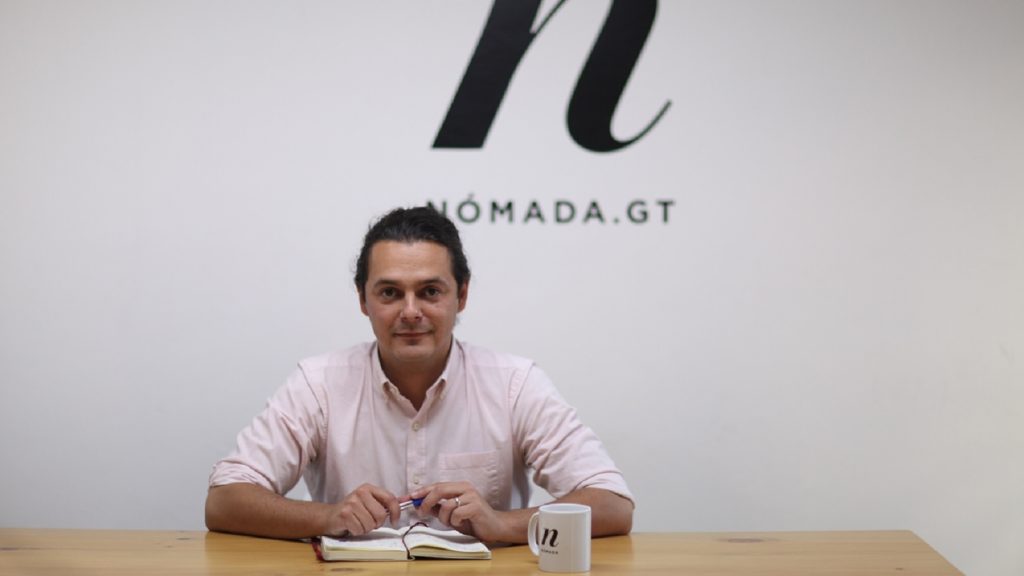In Guatemala where silence was the norm, Alejandra Castillo wanted to speak out against lawlessness and abuse of power. So she joined the human rights organization CALDH and is now their deputy director. Supported by Hivos, CALDH works to bring justice to the victims of the civil war and is now starting the Activist Alert project.
CALDH has also initiated the “Casa de la memoria” center located near Guatemala City’s central square. It is one of the few places in the country that extensively reflects on Guatemala’s violent history. Alexandra gave us a private tour after closing time.
Struggle for power and wealth
What Alejandra told us in the museum is impressive. The struggle for power and wealth in the country and the many people who have fallen victim to it form a common thread running through the history of Guatemala. The bloody civil war that raged from 1960 to 1996 cost the lives of around 200,000 people, and some 45,000 are still missing.
Alejandra grew up during this period, and for a long time she was taught to keep her thoughts to herself. To remain silent about what she saw happening around her, silent about the crimes that were committed, silent about the perpetrators who were still walking around freely. “It motivated me to fight for recognition of the victims,” said Alejandra. “I knew I wanted to support and protect the current generation of human rights activists. That’s how I ended up at CALDH.”
Activist Alert Guatemala
Back in her office, we talked about the project that CALDH is currently setting up with support from Dutch Hivos donors: Activist Alert Guatemala. The idea is to collect structural data on the safety of human rights defenders. Analyzing that data makes it possible to predict which groups or activists are at extra risk. It also provides hard evidence of abuses that can be used to seek political support for better legislation or greater enforcement of existing laws.
In Honduras, Hivos helped develop a similar system with the local organization C-Libre. They will now set it up in Guatemala together with CALDH. Alejandra is very happy with the collaboration. “We now mainly assist activists who have already been arrested or convicted. But with the C-Libre method we’ll be able to intervene earlier and, for example, prevent an arrest. This project fills a gap in our work.”
Conservative government
Current developments in Guatemala show how important CALDH’s work is. The conservative government is trying to get a law passed that limits the scope of human rights organizations like CALDH. The pressure on the original Mayan population is also increasing. Their land appears to be very suitable for palm oil plantations, and companies go to great lengths to get hold of it. Finally, the traditional composition of the family is seen as ideal and everything that deviates from it is openly rejected.
The current method will be analyzed and adjusted for Guatemala in the coming months, and Activist Alert should be fully active in the summer of 2020. Afterwards Alejandra also wants to involve other human rights organizations. “We focus primarily on journalists and indigenous landowners, but this approach can also help protect LGBTI or women’s rights activists. The more organizations that participate, the better the alert system works.”
Hivos is a good friend
At the end of our meeting, Alejandra told us how happy she is working with Hivos. “Hivos has been supporting us for twenty years. Not only financially, but also with political support, their network, advice and protection. Hivos is a good friend who we can always count on, and that’s priceless.”
About CALDH
CALDH was founded in 1986 during the civil war. The ruling power saw no need for an organization that stood up for human rights or sought justice for the thousands of victims and missing persons resulting from the conflict. So CALDH started first in Washington D.C. In 1996, after the peace treaty was signed, the organization moved to Guatemala where it is still active.

